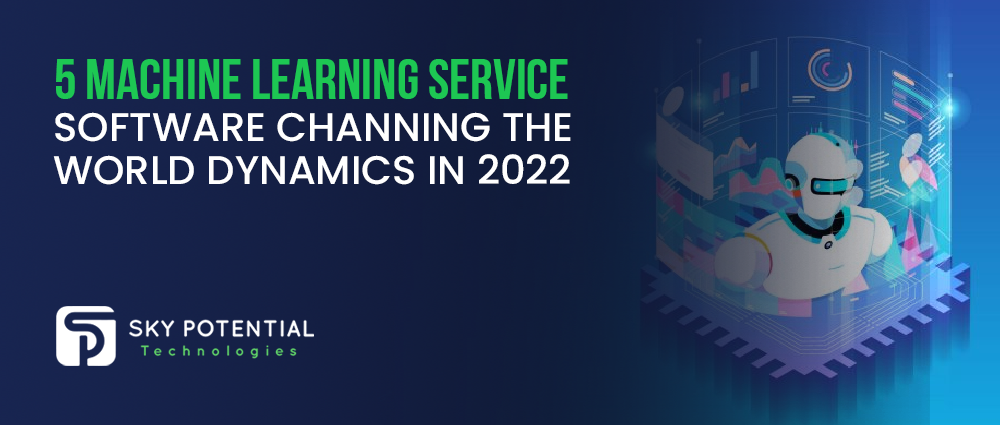- AI

Artificial Intelligence

Smart Products & Services
We follow Smart Products & Services

Intelligent Business Functions & Processes
We follow Intelligent Business Functions & Processes

Robotic Process Automation
We follow Robotic Process Automation

Personalized
healthcareWe follow Personalized healthcare

Identifying at-risk patients
We follow Identifying at-risk patients

Optimized routing and scheduling
We follow Optimized routing and scheduling
- ML

Machine Learning

Predictive
AnalyticsWe follow Predictive Analytics

Service Personalization
We follow Service Personalization

NLP
We follow NLP (Natural Language Processing)

Stock Market Forecasting
We follow Stock Market Forecasting

Fraud Prevention
We follow Fraud Prevention

Recommender engines
We follow Recommender engines
- blockchain

Blockchain

Public Blockchain
We follow Public Blockchain

Private Blockchain
We follow Private Blockchain

DEFI
We follow DEFI Blockchain

Initial stake pool offering development
We follow initial stake pool offering development
- IOT

Internet of Things
- AR
- Business Solutions

Business Solution

Business Performance Management
We follow Business Performance Management

Decision Making & Big Data Analytics
We follow Decision Making & Big Data Analytics

Enterprise Data Management
We follow Enterprise Data Management
- Apps

Apps

Native Apps
We follow Native Apps

Cross Platform Apps
We follow Cross Platform Apps

Web Apps
We follow Web Apps

Hybrid Apps
We follow Hybrid Apps

Cloud Native Apps
We follow Cloud Native Apps
- Lab

5 Machine Learning Service Software Channing the World Dynamics in 2022
In the last two decades, machine learning has gained a lot of highlight because of its ability to solve complex industrial emerging problems efficiently and effectively. The machine learning service is considered the most rapid game-changing advancements when integrated into the companies’ models. It has kick-started the age of revolution to automate the business core processes in an increasingly competitive world. At a time when businesses are adopting cutting-edge technologies and strategizing to solve future problems, machine learning plays a vital role in providing advanced solutions with artificial intelligence.
Companies worldwide have adopted AI/ML into their system to optimize their productivity in the long run in the easiest of ways. Today most software and apps use machine learning in some form or the other to solve technical issues quickly. The correct use of powerful machine learning algorithms has changed the perspective of how machines operates. From digital payments to fraud detections, it has digitally transformed companies. The machine learning strategy is divided into three broad categories, solving different problems of various industries in real-time. Let’s move forward and understand the role of machine learning and how it is connected to AI.
What is Machine Learning Service?

Machine learning is a part of artificial intelligence that analyzes data to automate business processes. Since it is a part of AI, it learns from data, identifies patterns, and makes better decisions with less human intervention. ML has the ability to evolve using multiple programming techniques and algorithms that use the company’s data and extract meaningful information to leverage AI. Moreover, big data and machine learning go hand in hand to provide next-level machine learning solutions to companies. The ML algorithms are well-trained using the three main methods or types. They include supervised learning, unsupervised learning, and reinforcement learning.
3 Main Types of Machine Learning
-
Supervised Learning

The most basic type of machine learning is supervised learning. The ML algorithms get trained using labeled data, informing the machine about detecting patterns. The data gets labeled to work correctly. However, it uses a small training dataset that is part of a large dataset and provides the basic idea of the emerging problem, solution, and data points to get catered to first. Secondly, the training data set is similar to the final data in the characteristic, providing its algorithms with unique labeled parameters to solve problems. The ML algorithm builds a relationship between the given parameter, integrating a cause and effect relationship between its dataset variables. Once the algorithm gets trained on how the data relationship works, the solutions get deployed. The best part about ML supervised learning is that it constantly improves itself, finding modern patterns and relationships even after implementation.
-
Unsupervised Learning

As the name suggests, unsupervised learning doesn’t require a labeled dataset to work efficiently. Hence, letting the machine look for patterns randomly without human intervention makes the data machine-readable. However, it enables more extensive datasets to get processed by the program. Thus, hidden structures make the machine learning service algorithms versatile to adapt to data with the fast-changing structures. On the contrary, they aren’t popular because of fewer day-to-day life applications.
-
Reinforcement Learning

The third and the last type of machine learning strategy is reinforcement learning that aspires from how human beings function and learn from data in real-time. It uses an algorithm that has the power to improve itself by learning from new situations with a trial-and-error method. This type of ML works without any fixed training data. Moreover, it reinforces favorable outputs and discourages non-favorable outputs.
Machine Learning has become the core of many software developments in the 21st century allowing the efficient working of business processes through automation. ML uses various robust software to provide high-end machine learning solutions to users like AI software.
Top 5 ML Software
-
Tensor Flow

The free, open-source software ML library streamlines multiple tasks while providing training and inference of neural networks. It enables statistical ML solutions with deep learning via its powerful CUDA GPUs interface. The Tensor, an open-source ML toolkit, helps build scalable systems to analyze and process data while providing complete support and unique functions for ML apps like NLP, computer visions, etc. Moreover, the software gets used mainly by machine learning beginners.
-
Apache Mahout

Another open-source machine learning service is Apache Mahout, focusing on collaborative filtering and classifications. The software is known for supporting multiple algorithms while still in process. Moreover, it utilizes the map/reduce paradigms. The advanced software features, Scala DSL and distributed linear algebra frameworks for deep learning. Lastly, it leverages CPUs, GPUs, and CUDA accelerators for native solvers.
-
AI

H20.ai wins the game with its scalable multi-layer artificial neural network when looking for a deep learning platform. The open-source software supports statistical and machine learning strategy algorithms like generalized linear models, gradient boosted machines, etc. Moreover, it supports Convolutional Neural Networks and Recurrent Neural Networks.
-
Shogun

Another open-source machine learning software Shogun is popular among the developers written in C++. Above that, it supports multiple programming languages such as Python, Ruby, C#, etc., to provide machine learning solutions. Additionally, dimensionality reduction, hidden Markov models, clustering algorithms, linear discriminant analysis, and support vector machines are some of Shogun’s modern and powerful algorithms.
-
Oryx 2

This ML software uses Lambda architectures for real-time machine learning processing. Oryx gets built on Apache Spark architecture that facilitates advanced functions for developing quick prototyping and apps. Moreover, its end-to-end development provides filtering, regression, classification, and clustering operations.
Machine learning has been integrated into many of the companies’ models for developing high-end technologies, automating business operations. This not only improves efficiency but leads to high productivity and performance. Furthermore, the machine learning service enhances customer experiences. The above were a few software that have changed the business dynamics, but others work on a small scale and are used by companies globally. In a rapidly advancing world, it becomes crucial to grasp machine learning to move forward with implementing other technologies and systems besides artificial intelligence.
Also Read: 4 Problems That Health Tech Solutions Company Can Solve For A Healthier World

















































Leave a Reply